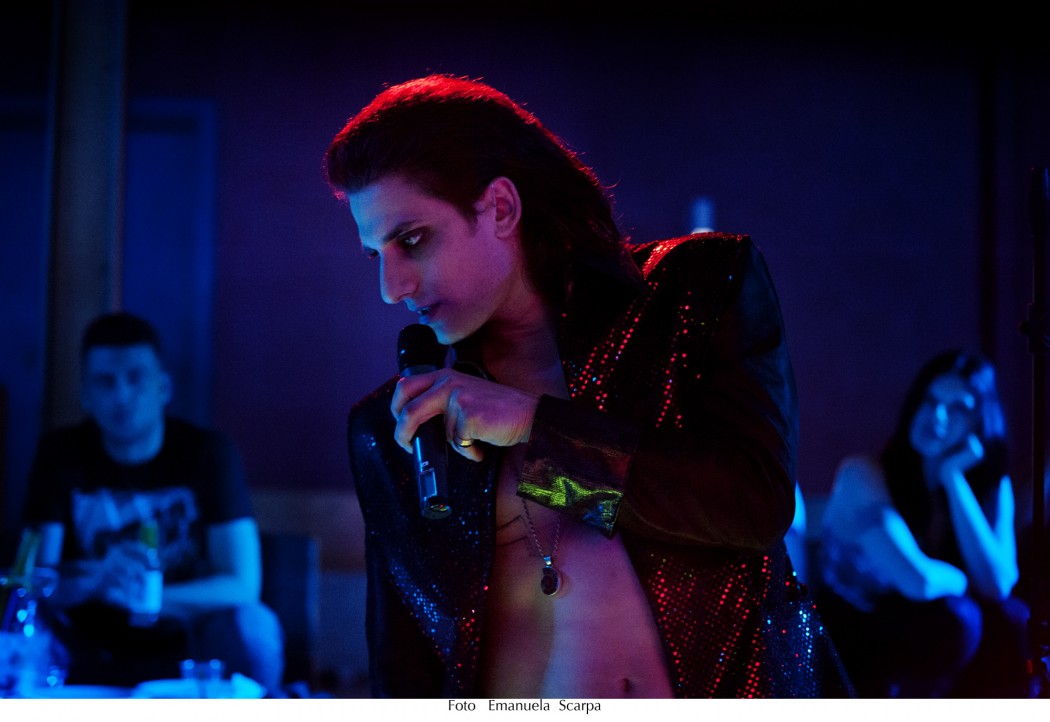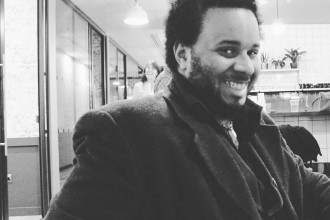Without any hesitation the great guest for the 6th edition of Cinema Made in Italy is the Italian superhero directed by Gabriele Mainetti in “They call me Jeeg Robot”.
Beloved by the public and critically acclaimed, the first Italian movie of this genre was already a sold out before the screening last Sunday, the 13th of March at the French Institute, Cinéma Lumière.
The movie, which runs miles away from the stereotypical Marvel’s productions, is based on the incredible story of Enzo Ceccotti (Claudio Santamaria), a scoundrel living on the fringes of society, in the suburbs of Rome.
One day he comes into contact with a radioactive substance and accidentally discovers he has superpowers.
Enzo starts to use them for his own advantage, until young Alessia (Ilenia Pastorelli) bursts into his life. She is innocent, disturbed and obsessed with the Japanese comic strip Steel Jeeg Robot, through which she finds comfort from her distress. Alessia, despite all her weakness, is able to show him how to open his heart to others.
The villain of the story is Lo Zingaro (Luca Marinelli), the local merciless boss, obsessed by the Italian female icons from early 80s, victim of the showbiz and looking for his own moment of glory.
Jeeg Robot arrived in London supported by the critics and the public. Did you expect this success?
Honestly I did not expect such a large range of fans. When we had the idea of this movie, we thought that it would have been appreciated by young people. But after the success in Italian cinemas we know we have supporters from all ages.
Your work has been acknowledged as the first Italian movie of this genre. What is actually your idea behind the project?
I just wanted to tell a great story. The story of an introverted outcast who is able, thanks to a woman, to change and open his life to the others.
Are you planning to do a sequel?
We had a huge demand from our followers and fans for a sequel. I would do it only if we could find a reason to keep on calling it Jeeg Robot. Also, we need to find a great story.
Rome can be considered as one of the characters in the movie. How important is this city and why did you choose it as your set?
Rome is important to the movie, but not essential as some critics highlighted. I wanted the main character to be in a big city, but it could have been London or New York. I chose Rome and its poorest suburbs, because it’s the place I come from, the one I know best. In all my works there is a love and hate feeling towards Rome.
You talked about paedophilia, as you did in your short film “Tiger Boy”. Why did you choose to address this issue once again?
‘Tiger Boy‘ came from an Italian production company who asked me to shoot short movies with social purposes. I thought paedophilia would have been a challenging subject and I did lots of research on the matter. When I thought to Alessia’s character, all this work resurfaced and I decided to use it.
You are not only a movie director, but also the composer of the original soundtrack with Michele Braga. How much is the music involved in your job?
It’s not fundamental for me. I mean, it is when I need to use the technique of ‘needle drop’, as Scorsese’s movies taught me. But I leave the musical aspect to the composer. The movie is a complex reality that can change shape at each stage of the production.
In an interview you told that you had the idea back in 2010 but it took a lot of time to find someone crazy enough as you finance it. In a way, Jeeg Robot has been your dream for a long time. Many Italians move abroad with dreams to fullfil. What would you suggest to them? What is your experience as a young movie director in Italy?
Italy is a country that looks backwards. A fearful country. At the same time it rewards you when you dare. There is a lot of resistance in some industries, like cinema. My film has excellent results and spectators, but I don’t feel like a pioneer.
We should all consider ourselves as a team. You cannot bet only on Totti (the Italian famous footballer) who always scores. If Totti plays with a bad team, he will struggle.






